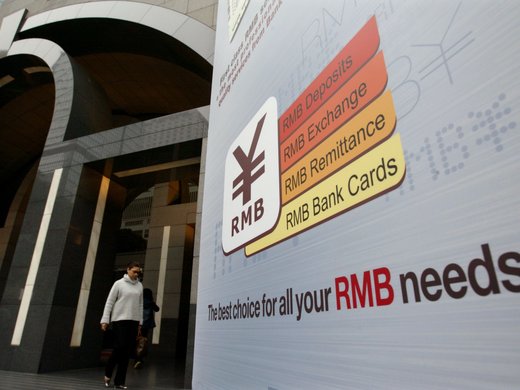The US congress may yet value their country’s central role in global economic affairs.
Mitch McConnell, the Republican majority leader in the Senate, predicts that his chamber will pass legislation that would allow the Obama administration to complete trade deals. This is significant for several reasons. Passage of “fast-track” legislation would clear the way for the completion of the Trans-Pacific Partnership, which could provide a significant jolt to the global economy. The politics are fascinating, as President Barack Obama appears set to do a deal with Republicans to help cement his legacy, while battling openly with Elizabeth Warren, arguably the only politician who rivals Obama’s popularity within the Democratic Party. Fast-track authority also would allow the US to reassert itself in global economic affairs. This would force a rethink of the narrative that the American empire is in retreat.
It’s been well documented that the refusal of Republican lawmakers to endorse the 2010 IMF governance reforms has hurt the US brand abroad. The Obama administration deserves more blame for this than it tends to receive, as it allowed what should have been a routine vote to become a polarizing political issue. Still, there is no denying the Republican opponents of the IMF put their dislike of the president ahead of the US’s standing in the world. As the 2010 package languished, the BRICS countries created their own lending institutions, and US allies rushed to become founding members of the China-led Asian Infrastructure Development Bank.
For a period last week, it looked like Congress was poised to exacerbate the situation. Democratic senators foiled President Barack Obama’s request that Congress waive its right to rewrite trade agreements negotiated by the administration, agreeing instead to subject them only to a yes-or-no vote. In Washington, they call it “fast-track authority,” and it is essential to complete any trade negotiation in which the US engages. No one on the other side of the table will agree to anything if there is a risk Congress will overhaul the text.
Mr. Obama and Mr. McConnell got things back on track, subsequently winning a vote to begin debate on the bill.
Let’s assume everything goes to plan and Mr. Obama gets his negotiating authority. Talks over the TPP likely would conclude this year, as the White House has made clear that it wants a vote on the trade agreement before 2016 presidential politics takeover. Presuming TPP is ratified, the US essentially will have dictated the terms of the new trade agreement involving a critical mass of Asia’s most important economies. Japan, Australia, Malaysia, Vietnam and Singapore all would be members, as would Canada and Mexico. (The others: Brunei, New Zealand, Chile, and Peru.)
The channel-changing potential of a US-led Asia-Pacific trade agreement appeared to dawn on Arvind Subramanian during a panel discussion on trade in which he participated at the IMF meetings in Washington last month. Days earlier, Subramanian was in the New York Times, highlighting how the AIIB signaled a decline in US influence. But then, during the panel discussion, he noted the contradiction between the notion that Washington’s clout had been diminished, while it appeared to be on the verge of setting the rules of the commerce in rising Asia.
The US denies China has anything to do with TPP -- as it must.
But the TPP clearly is meant to at least tighten the US’s economic links with its most important trading partners in the Asia-Pacific region, tethering them to America’s orbit as China's gravitational pull for goods and services grows ever stronger. The potential of TPP will emerge years from now if other countries join, and perhaps even if they do not. Adam Posen, the head of the Peterson Institute for International Economics, noted recently that US values would spread in Asia through the presence of more American companies and investors. The TPP also could set the standard for doing business in the region, forcing companies in non-TPP countries to follow, even if their governments resist entry.
Mari Elka Pangestu, the former Indonesian trade minister, said on the same trade panel as Subramanian that her country would find it difficult to join TPP because many laws would have to be changed. But Indonesia’s government is under pressure from businesses to ensure they don’t lose a competitive edge. “Our business people are saying, `Vietnam is in TPP, what are you doing?’” Pangestu said. “Even if we don’t join, we are paying attention.”
But Congress still could screw it up. Then Indonesia would have little to worry about.


